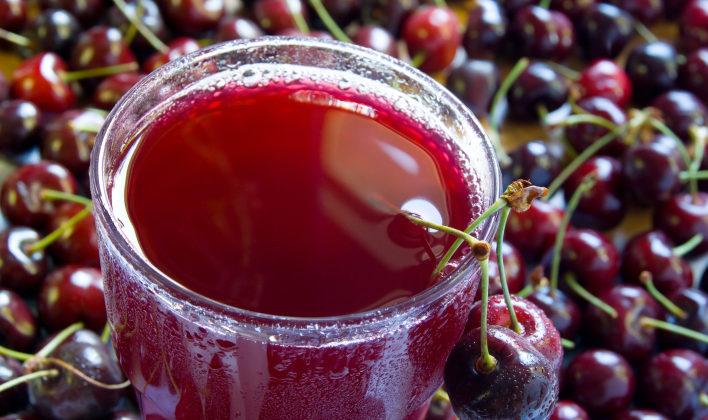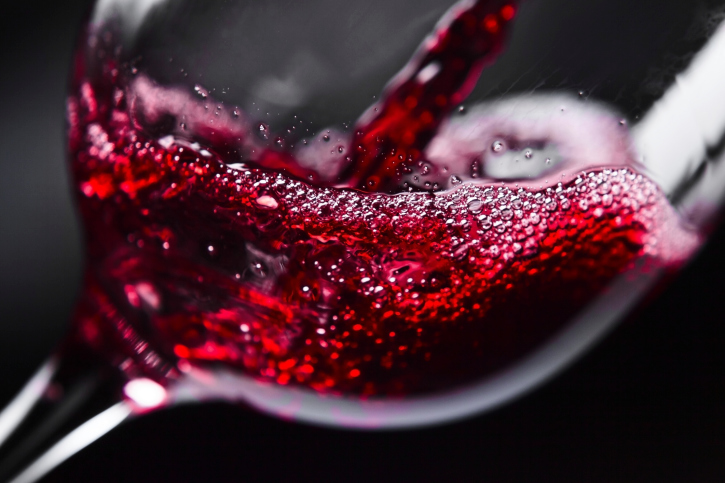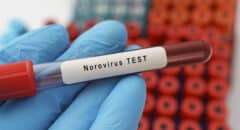
High levels of bad cholesterol and total cholesterol increase your risk of heart disease and stroke. Instead of the costly trip to the doctor for surgery after your cholesterol has gone up too much, put your levels in check with a few dietary changes: specifically, what you drink. It plays a huge part in your good and bad cholesterol levels, so here’s what to switch it up to.
Drinks that Lower Cholesterol
Cranberry Juice
While you may be used to drinking some cranberry juice cocktail, you’ll want to switch to the sugar-free version for these heart benefits. WebMD notes a long-term study found drinking two glasses of plain cranberry juice per day was enough to raise levels of good HDL cholesterol.
Additionally, the beverage seemed to also lower levels of LDL cholesterol. And you can thank the powerful antioxidants that are in the fruit for that.
If cranberries are just too bitter for your palate, it may also be worth giving blueberries a try. Verywell notes a few studies have found the antioxidants in blueberry juice can help lower LDL cholesterol levels, too.

Green Tea
Healthline explains a meta-analysis from the American Journal of Clinical Nutrition suggests that this beverage has the ability to lower “bad,” or LDL, cholesterol. The study noted there was no significant impact on “good,” or HDL, cholesterol, however.
So, why is green tea so good? The antioxidants found in this drink are what help cholesterol the most, though it’s important to note not all green tea is equal. How processed the tea is can also affect how good it is for your body.
Aside from green tea, hibiscus tea also has incredibly high amounts of antioxidants.

Ginger Tea
Ginger has been used medicinally for centuries to treat health problems such as nausea and diarrhea. Preliminary studies also indicate that it may also help lower cholesterol and prevent atherosclerosis.
Atherosclerosis is the build-up of fats, cholesterol, and other substances in and on the artery walls. Go easy on this tea, though.
The University of Maryland Medical Center recommends not consuming more than 4g of ginger daily.

Tart Cherry Juice
Tart cherries are loaded with antioxidants that provide several benefits, including reducing cholesterol levels.
In a study conducted at the University of Michigan Cardiovascular Center, rats that received whole tart cherry powder as part of a high-fat diet had significantly lower levels of cholesterol than other rats.
Cherry juice is readily available at supermarkets and natural health stores.
However, you can also make your own at home using dried cherries or cherry powder.

Tomato juice
Tomatoes are rich in a compound called lycopene, which may improve lipid levels and reduce “bad” LDL cholesterol.
In addition, research suggests processing tomatoes into juice increases their lycopene content.
Tomato juice is also rich in cholesterol-reducing fiber and niacin.
A 2015 study found that 25 women who drank 280 ml of tomato juice daily for two months experienced a reduction in blood cholesterol levels. The participants were aged 20–30 years and had body mass index scores of at least 20.

Cocoa drinks
The main antioxidant in cocoa is called flavanols, which is a compound that may help to improve cholesterol levels by decreasing LDL cholesterol and increasing HDL cholesterol. Dark chocolate that contains more than 70 percent cocoa can help to improve heart health, blood pressure, and cognitive function.
Unfortunately, cocoa drinks are typically high in added sugars, which can have adverse effects on cardiovascular health and increase your risk for heart disease, diabetes, cancer, and high blood pressure.
Taking these drinks consistently while engaging in exercise can help you drink your way to better health!

Red wine
Now, we’re talking, lol! While too much alcohol can be detrimental to your health, some studies have found that moderate alcohol consumption may be protective against hypertension and may have protective cardiovascular health benefits.
However, most of these studies looked at blood test results, not the true impact on health, and there are negative health consequences to even minimal alcohol use that need to be weighed against the potential benefits.
Drinks and Habits to Avoid for Healthy Cholesterol
When working to improve or maintain healthy cholesterol levels, what you avoid can be just as important as what you include in your diet.
Drinks to Limit or Avoid
Certain beverages can contribute to higher cholesterol or unhealthy fat levels in the bloodstream. These include:
-
Coffee or tea with cream, high-fat milk, or artificial creamers
-
Smoothies or drinks made with coconut or palm oil
-
Pressed coconut drinks
-
Ice-cream-based shakes or beverages
-
Other high-fat dairy drinks
Additionally, drinking more than 12 ounces of sugary beverages per day can lower HDL (“good” cholesterol) and raise triglycerides, a type of fat linked to heart disease.
Alcohol and Cholesterol
The impact of alcohol on cholesterol depends on factors like age, sex, type of alcohol, and how much is consumed. While moderate drinking may offer some heart benefits, heavy drinking increases cholesterol and carries many health risks, often outweighing any potential positives.
Other Lifestyle Tips for Lowering Cholesterol
The American Heart Association (AHA) recommends:
-
Limiting foods high in saturated and trans fats (red meat, full-fat dairy)
-
Reducing sugar and salt intake
-
Eating nutrient-rich foods (fruits, vegetables, whole grains)
-
Exercising at least 150 minutes per week
-
Maintaining a moderate weight
-
Quitting smoking
If lifestyle changes aren’t enough, doctors may prescribe statins or other cholesterol-lowering medications.
When to See a Doctor
Most adults should check cholesterol every four to six years, unless they have higher risk factors that require more frequent testing. A simple blood test can determine cholesterol levels, and healthcare professionals can recommend diet, exercise, or medication if needed.
Quick Questions
-
What drink reduces cholesterol quickly? No single drink works instantly; improvements take weeks to months.
-
Does lemon water help? While hydrating, it doesn’t directly lower cholesterol.
-
What juices are best? Soy milk, tomato juice, and green tea may support healthier cholesterol levels.
Managing cholesterol is a long-term process. Pairing healthy drinks with balanced nutrition, regular exercise, and medical guidance offers the best results.









